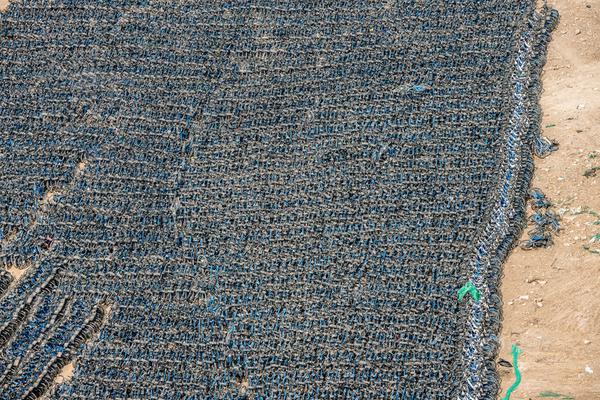
1. The five major functions of the operating system include: process and processor management, operation management, storage management, equipment management and file management.
2. A [Analysis] As the manager of the resources of the computer system, the main function of the operating system is to manage and schedule all the software and hardware resources of the system reasonably and improve the overall performance of the computer system.
3. Operating System (abbreviation: OS) is a group of interrelated system software programs that supervise and control computer operation, use and run hardware, software resources and provide public services to organize user interaction.
4. The main function of the operating system: process management. Resident programs and applications run on the basis of the process.When the computer adopts the von Neumann structure, each CPU can only run one process at a time.
5. The operating system has five functions: processor management: mainly controls and manages the work of the CPU. Storage management: mainly allocate and manage memory. Device management: mainly manage basic input and output devices. File management: responsible for the organization, storage, operation and protection of computer files.
6. The operating system has five functions: processor management: mainly controls and manages the work of the CPU. Storage management: mainly carry out memory allocation and management device management: mainly manage basic input and output device file management: responsible for the organization, storage, operation and protection of computer files, etc.

1. The storage management function of the operating system is to manage memory resources. It mainly realizes memory allocation and recovery, storage protection and memory expansion. The device management of the device management operating system is responsible for allocating and recycling external devices, and controlling external devices to operate according to the requirements of user programs.
2. The functions of the computer operating system include: processor management, memory management, device management, file management, job management and other functional modules. Processor management. The most basic function of processor management is to handle interrupt events. The processor can only detect interrupt events and generate interrupts and cannot process them.
3. The five major functions of the operating system are processor management, memory management, device management, file management and job management. Processor management The most basic function of processor management is to process interrupt events. After configuring the operating system, various events can be processed.
1. The main functions of the computer operating systemIt is process management. Its work is mainly process scheduling. In the case of a single user and a single task, the processor is only exclusive to one user's task. The work of process management is very simple.
2. The five major functions of the operating system are processor management, memory management, device management, file management and job management. Processor management The most basic function of processor management is to process interrupt events. After configuring the operating system, various events can be processed.
3. The role and basic functions of the operating system: the basic functions of the operating system include task management, interface management, human-computer interaction, graphical interface, voice control and virtual reality, etc.; file management; storage management, which is essentially the management of storage "space", mainly refers to the management of the main memory. Reason.
4. The basic functions of the operating system include process management, memory management, file system, network communication, security mechanism, user interface and driver. The operating system is the interface between the user and the computer, and also the interface between computer hardware and other software.
5. The five functions of the operating system are processor management, memory management, device management, file management and job management. Processor management The most basic function of processor management is to handle interrupt events. After configuring the operating system, various events can be processed.
6. The operating system has five functions: processor management: mainly controls and manages the work of the CPU. Storage management: mainly allocate and manage memory. Device management: mainly manage basic input and output devices. File management: responsible for the organization, storage, operation and protection of computer files.
Binance login-APP, download it now, new users will receive a novice gift pack.
1. The five major functions of the operating system include: process and processor management, operation management, storage management, equipment management and file management.
2. A [Analysis] As the manager of the resources of the computer system, the main function of the operating system is to manage and schedule all the software and hardware resources of the system reasonably and improve the overall performance of the computer system.
3. Operating System (abbreviation: OS) is a group of interrelated system software programs that supervise and control computer operation, use and run hardware, software resources and provide public services to organize user interaction.
4. The main function of the operating system: process management. Resident programs and applications run on the basis of the process.When the computer adopts the von Neumann structure, each CPU can only run one process at a time.
5. The operating system has five functions: processor management: mainly controls and manages the work of the CPU. Storage management: mainly allocate and manage memory. Device management: mainly manage basic input and output devices. File management: responsible for the organization, storage, operation and protection of computer files.
6. The operating system has five functions: processor management: mainly controls and manages the work of the CPU. Storage management: mainly carry out memory allocation and management device management: mainly manage basic input and output device file management: responsible for the organization, storage, operation and protection of computer files, etc.

1. The storage management function of the operating system is to manage memory resources. It mainly realizes memory allocation and recovery, storage protection and memory expansion. The device management of the device management operating system is responsible for allocating and recycling external devices, and controlling external devices to operate according to the requirements of user programs.
2. The functions of the computer operating system include: processor management, memory management, device management, file management, job management and other functional modules. Processor management. The most basic function of processor management is to handle interrupt events. The processor can only detect interrupt events and generate interrupts and cannot process them.
3. The five major functions of the operating system are processor management, memory management, device management, file management and job management. Processor management The most basic function of processor management is to process interrupt events. After configuring the operating system, various events can be processed.
1. The main functions of the computer operating systemIt is process management. Its work is mainly process scheduling. In the case of a single user and a single task, the processor is only exclusive to one user's task. The work of process management is very simple.
2. The five major functions of the operating system are processor management, memory management, device management, file management and job management. Processor management The most basic function of processor management is to process interrupt events. After configuring the operating system, various events can be processed.
3. The role and basic functions of the operating system: the basic functions of the operating system include task management, interface management, human-computer interaction, graphical interface, voice control and virtual reality, etc.; file management; storage management, which is essentially the management of storage "space", mainly refers to the management of the main memory. Reason.
4. The basic functions of the operating system include process management, memory management, file system, network communication, security mechanism, user interface and driver. The operating system is the interface between the user and the computer, and also the interface between computer hardware and other software.
5. The five functions of the operating system are processor management, memory management, device management, file management and job management. Processor management The most basic function of processor management is to handle interrupt events. After configuring the operating system, various events can be processed.
6. The operating system has five functions: processor management: mainly controls and manages the work of the CPU. Storage management: mainly allocate and manage memory. Device management: mainly manage basic input and output devices. File management: responsible for the organization, storage, operation and protection of computer files.
 OKX Wallet apk download latest version
OKX Wallet apk download latest version
147.48MB
Check Binance Download for PC Windows 10
Binance Download for PC Windows 10
187.96MB
Check Binance app
Binance app
253.41MB
Check Binance login
Binance login
239.57MB
Check OKX Wallet app download for Android
OKX Wallet app download for Android
247.47MB
Check Binance login
Binance login
694.87MB
Check Binance APK
Binance APK
284.57MB
Check Binance app download Play Store
Binance app download Play Store
819.81MB
Check Binance wikipedia
Binance wikipedia
985.81MB
Check Binance login
Binance login
298.85MB
Check Binance APK
Binance APK
555.52MB
Check OKX Wallet apk download latest version
OKX Wallet apk download latest version
783.69MB
Check OKX Wallet app download for Android
OKX Wallet app download for Android
128.21MB
Check okx.com login
okx.com login
485.17MB
Check OKX Wallet apk download
OKX Wallet apk download
538.97MB
Check OKX Wallet APK
OKX Wallet APK
696.86MB
Check Binance login App
Binance login App
536.95MB
Check Binance exchange
Binance exchange
697.87MB
Check Okx app download
Okx app download
489.77MB
Check Binance app download Play Store
Binance app download Play Store
624.61MB
Check Binance US
Binance US
497.42MB
Check OKX Wallet Sign up
OKX Wallet Sign up
829.16MB
Check Okx app download
Okx app download
962.17MB
Check Binance wallet
Binance wallet
715.33MB
Check OKX Wallet app
OKX Wallet app
263.18MB
Check Binance login
Binance login
345.75MB
Check OKX Wallet download
OKX Wallet download
399.61MB
Check Binance app
Binance app
229.95MB
Check Binance exchange
Binance exchange
457.62MB
Check OKX Wallet APK
OKX Wallet APK
648.34MB
Check OKX download
OKX download
352.34MB
Check Okx app download
Okx app download
252.51MB
Check Binance login
Binance login
114.32MB
Check Binance wallet
Binance wallet
442.87MB
Check Binance download APK
Binance download APK
266.73MB
Check OKX app
OKX app
484.58MB
Check
Scan to install
Binance login to discover more
Netizen comments More
2923 仰取俯拾网
2025-02-02 18:03 recommend
215 油嘴滑舌网
2025-02-02 17:36 recommend
2231 鸿业远图网
2025-02-02 17:25 recommend
1900 明来暗往网
2025-02-02 17:21 recommend
2707 悬车束马网
2025-02-02 15:29 recommend